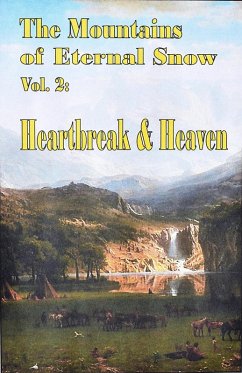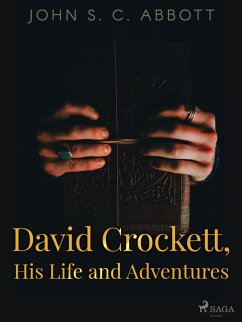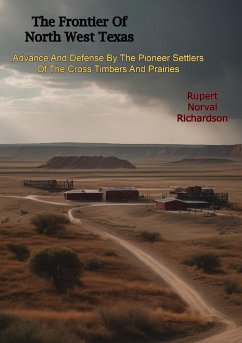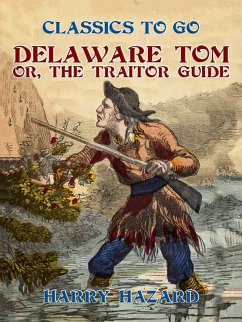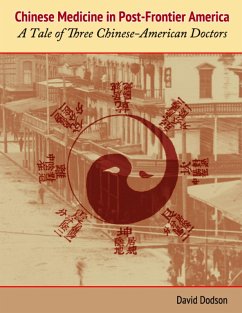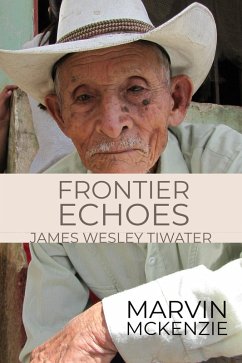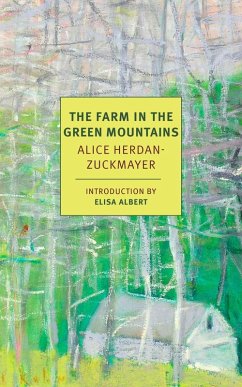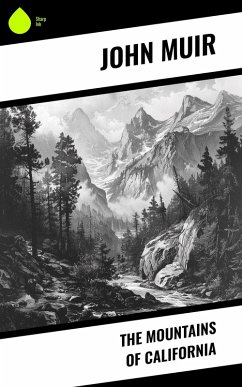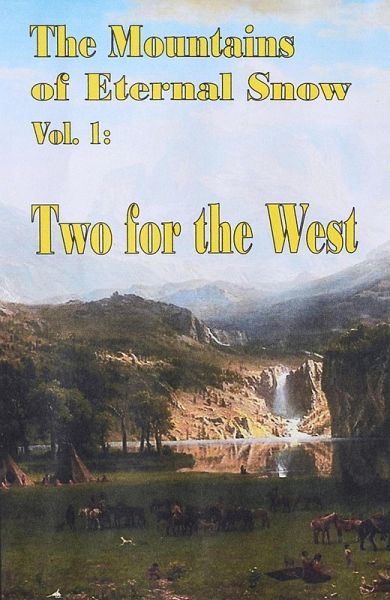
Two for the West (The Mountains of Eternal Snow, #1) (eBook, ePUB)

PAYBACK Punkte
0 °P sammeln!
The Mountains of Eternal Snow (Revised). Book 1: Two for the West, 79,400 words.(Based on the life of James K. Moore, longest-practicing military post trader in America.)In the spring of 1864, Martin McLaughlin, age 21, headed for the West. He was not interested in going but he had incipient tuberculosis so he had little choice. He encouraged three male friends to accompany him. Together, the quartet took the train to end of tracks-St. Joseph, Missouri.At about the same time, a young Quaker girl, Edith Teague and her family left their cabin and farm, and moved temporarily to St. Jo. The Civil ...
The Mountains of Eternal Snow (Revised). Book 1: Two for the West, 79,400 words.
(Based on the life of James K. Moore, longest-practicing military post trader in America.)
In the spring of 1864, Martin McLaughlin, age 21, headed for the West. He was not interested in going but he had incipient tuberculosis so he had little choice. He encouraged three male friends to accompany him. Together, the quartet took the train to end of tracks-St. Joseph, Missouri.
At about the same time, a young Quaker girl, Edith Teague and her family left their cabin and farm, and moved temporarily to St. Jo. The Civil War was causing problems for all Missouri settlers since half the state was for the North and half was for the South.
Martin and Edith met by happenstance on the banks of the Missouri River. It was love at first sight for both. He was leaving for the Idaho Territory with his friends but she agreed to write him in Virginia City. When the quartet couldn't find transportation on the river, they ended up as bullwhackers, honchoing yoked oxen that pulled two-ton supply wagons, walking seven hundred miles across the plains at 15 miles per day.
First they encountered a heat wave, then Shoshone warriors looking for a fight with Sioux. When the Shoshone camped nearby, the four lads visited the teepee village. Martin got talked into a Shoshone "cure" for his incipient tubercular cough and almost died. His friends left him behind but believed he would catch up later.
In St. Jo, Edith was befriended by her spirited aunt who was planning to teach negroes in a church school. Edith wanted to help. Her mother's emotional fabric was not geared to change or stress, and was dismayed Edith was falling under her aunt's progressive influence. Then she suffered more anxiety when her Quaker husband joined the Missouri Militia.
When Edith began to teach that summer, rabid masked men against teaching blacks, burned the schoolhouse. Unfortunately, Edith's aunt was inside. Edith was devastated but continued to read about heroic women who were helping to teach and bring civilization to the West.
Martin's friends remained in Virginia City where the uncle of one had a gold mine. Martin got a job with the Holladay Stage Line. While he played shotgun, the stage was robbed. Everyone was killed, save Martin who was badly wounded.
Edith created a bond with one of her aunt's associates in St. Louis, a suffragette. She got approval from her parents to spend time with her friend and join the suffragette election in Lawrence, Kansas which included a bill to pass Women's Suffrage. They lost. By then, Martin had still not written. When Edith finally enquired, she was told he had been killed during the hold-up.
His death and the suffragette loss formed the impetus she needed to leave home and teach. She answered an ad for a position with a family in Carter Station, Wyoming Territory. When she discovered her mother was hiding Martin's post-robbery letters, she received approval from her father to leave.
By the time Martin had healed, Holladay had sold out to Wells Fargo. Martin took a job with them in Salt Lake City, but didn't' like it, so decided to return to freighting. He had an offer from an entrepreneur who told Martin he should take a load of freight for him to the sutler in Fort Bridger after which be would be his partner in a new store in a new town called Bear River City. Martin was delighted with the sutler's enterprise and decided that was for him. In the meantime, everything was coming together. He would be a merchandising clerk and partner. Edith had become a distant thought.
(Based on the life of James K. Moore, longest-practicing military post trader in America.)
In the spring of 1864, Martin McLaughlin, age 21, headed for the West. He was not interested in going but he had incipient tuberculosis so he had little choice. He encouraged three male friends to accompany him. Together, the quartet took the train to end of tracks-St. Joseph, Missouri.
At about the same time, a young Quaker girl, Edith Teague and her family left their cabin and farm, and moved temporarily to St. Jo. The Civil War was causing problems for all Missouri settlers since half the state was for the North and half was for the South.
Martin and Edith met by happenstance on the banks of the Missouri River. It was love at first sight for both. He was leaving for the Idaho Territory with his friends but she agreed to write him in Virginia City. When the quartet couldn't find transportation on the river, they ended up as bullwhackers, honchoing yoked oxen that pulled two-ton supply wagons, walking seven hundred miles across the plains at 15 miles per day.
First they encountered a heat wave, then Shoshone warriors looking for a fight with Sioux. When the Shoshone camped nearby, the four lads visited the teepee village. Martin got talked into a Shoshone "cure" for his incipient tubercular cough and almost died. His friends left him behind but believed he would catch up later.
In St. Jo, Edith was befriended by her spirited aunt who was planning to teach negroes in a church school. Edith wanted to help. Her mother's emotional fabric was not geared to change or stress, and was dismayed Edith was falling under her aunt's progressive influence. Then she suffered more anxiety when her Quaker husband joined the Missouri Militia.
When Edith began to teach that summer, rabid masked men against teaching blacks, burned the schoolhouse. Unfortunately, Edith's aunt was inside. Edith was devastated but continued to read about heroic women who were helping to teach and bring civilization to the West.
Martin's friends remained in Virginia City where the uncle of one had a gold mine. Martin got a job with the Holladay Stage Line. While he played shotgun, the stage was robbed. Everyone was killed, save Martin who was badly wounded.
Edith created a bond with one of her aunt's associates in St. Louis, a suffragette. She got approval from her parents to spend time with her friend and join the suffragette election in Lawrence, Kansas which included a bill to pass Women's Suffrage. They lost. By then, Martin had still not written. When Edith finally enquired, she was told he had been killed during the hold-up.
His death and the suffragette loss formed the impetus she needed to leave home and teach. She answered an ad for a position with a family in Carter Station, Wyoming Territory. When she discovered her mother was hiding Martin's post-robbery letters, she received approval from her father to leave.
By the time Martin had healed, Holladay had sold out to Wells Fargo. Martin took a job with them in Salt Lake City, but didn't' like it, so decided to return to freighting. He had an offer from an entrepreneur who told Martin he should take a load of freight for him to the sutler in Fort Bridger after which be would be his partner in a new store in a new town called Bear River City. Martin was delighted with the sutler's enterprise and decided that was for him. In the meantime, everything was coming together. He would be a merchandising clerk and partner. Edith had become a distant thought.
Dieser Download kann aus rechtlichen Gründen nur mit Rechnungsadresse in A, B, CY, CZ, D, DK, EW, E, FIN, F, GR, H, IRL, I, LT, L, LR, M, NL, PL, P, R, S, SLO, SK ausgeliefert werden.




